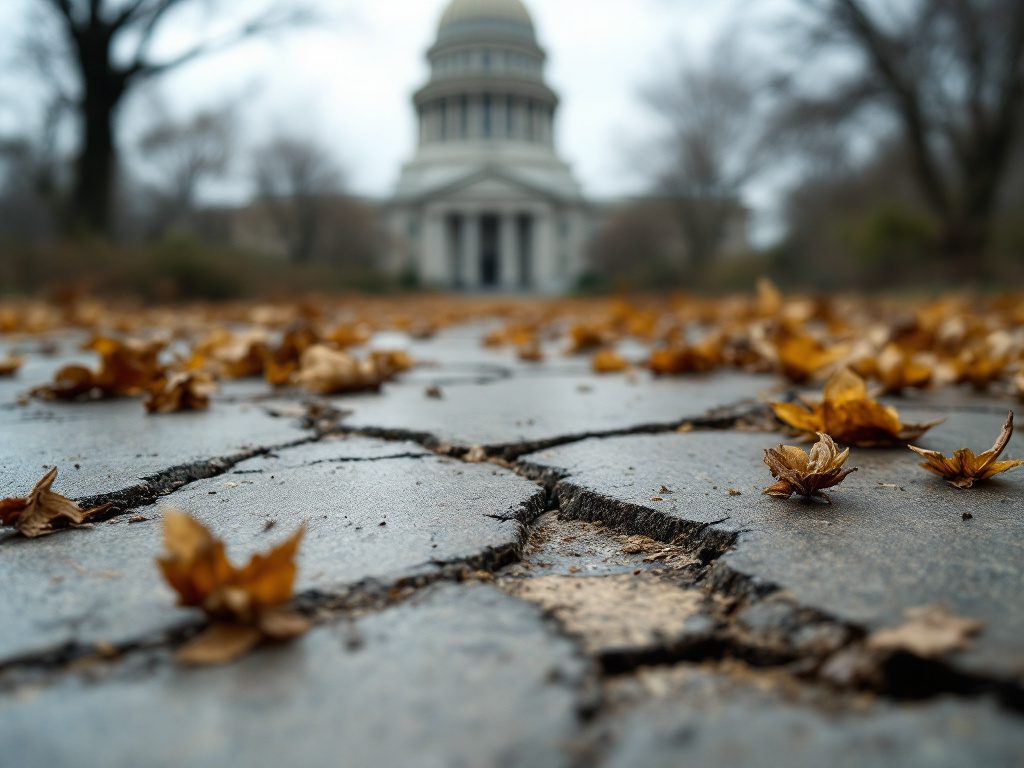Shadows Over Justice: An Unsolved Leak Rocks Wisconsin
Picture this: On a warm June morning in 2024, Wisconsin wakes to headlines not about a new ruling, but about a secret—spilled from the heart of its highest court. An explosive revelation: a draft Wisconsin Supreme Court order, concerning a pivotal abortion rights case, has been leaked to the public via Wisconsin Watch. Instantly, the air buzzes with questions: Who breached this hallowed institution’s silence? Was this a deliberate act of conscience or a break in the dam of institutional discipline?
This unprecedented leak centered on the court’s decision to hear Planned Parenthood v. Urmanski, a case poised to define abortion rights for generations of Wisconsinites. All seven justices vocally decried what they called a historic breach of trust, likening it to the 2022 Dobbs draft leak that rattled the U.S. Supreme Court. But after a months-long, $165,740 investigation, Wisconsin’s judiciary found itself in the same uncomfortable position as its federal counterpart: empty-handed, with trust in the balance.
Investigators scoured every corner available—interviewing justices, aides, interns, security, and reviewing computer logs. Yet, according to the final report, “The investigation could not identify the culprit, nor establish a detailed timeline of the breach due to missing digital records.” In the words of legal scholar and Marquette professor Janine Geske, “Such leaks do more than violate protocol; they chip away at the court’s legitimacy in the eyes of the public.”
Accountability Lost: A Deliberate Leak—and Dead Ends
The headlines reveal a key point: The leak was almost certainly deliberate. The report spells out that the draft order—confirming the court’s intent to rule on whether the state constitution shields abortion rights—was not errantly misplaced or snagged by spyware. At three points, the draft moved outside the guarded court network: to Justice Ann Walsh Bradley’s personal email, to a Capitol Police sergeant for anticipated security concerns, and within several court official communications.
Still, the trail dead-ended. Missing automation logs (including those from June 13 through June 26, 2024) obscured what might have been digital bread crumbs leading right to the leaker’s desk. Not even the presence—or absence—of a smoking gun was clear. Investigators found no evidence of a computer breach, nor a wrongful external email to, say, a reporter. The investigation’s limitations echoed what journalists and watchdogs see time and again: real accountability thwarted by both technological and bureaucratic inertia.
Was the leak a bold act designed to bring public pressure onto what could become a landmark decision about bodily autonomy? Or was it purely self-interested maneuvering amid Wisconsin’s sharply divided political landscape? Either way, the cost was real—not just in taxpayer dollars, but in the corrosion of mutual trust inside government.
The probe also highlighted lax security practices that, frankly, should trouble us all. Confidential documents occasionally found their way onto personal email accounts or even lingered in unguarded printer trays. According to the investigation, “Unauthorized individuals occasionally accessed restricted floors of the Court’s building in Madison,” jeopardizing not just case secrecy but potentially the physical safety of staff handling volatile topics.
“The echoes of the U.S. Supreme Court’s Dobbs leak still haunt us, reminding the public that even the highest courts are not immune to internal dissent and external political pressures.”
What can be drawn from this? Clearly, there’s no appetite on the court for outside intervention—pro-life groups, for instance, were denied the chance to leap into the Planned Parenthood v. Urmanski case. But the question lingers: Absent meaningful consequences, does anything stop future leaks from becoming the new norm?
Beyond the Leak: What’s at Stake for Democracy, Rights, and Reform?
Courts rely on secrecy to deliberate freely, not to subvert the public’s right to know, but to shield their analytical process from premature politicization. When that veil is penetrated, the damage ripples far beyond headlines. According to a 2022 Pew Research Center survey, public trust in both state and federal courts has sharply declined after high-profile leaks and partisan-tinged rulings. In Wisconsin, where democracy often seems to teeter on a knife-edge, trust in an impartial judiciary may well determine how safe or vulnerable critical rights—including abortion—remain.
The progressive lens sees this leak not as a random aberration, but as a warning flare. Judicial secrecy should never shield regressive policy, nor justify unaccountable behavior. But neither should institutional weakness open the door to ethical shortcuts. Harvard constitutional expert Laurence Tribe notes, “Leaks, especially on issues as intimate as reproductive rights, remind us that those in power sometimes forget who they really serve.”
If the goal of the leaker was to spark a public reckoning, they partly succeeded. The past year in Wisconsin has seen marches, heated town halls, and renewed grassroots organizing around abortion rights—even before oral arguments could be scheduled in the Planned Parenthood case. Yet these gains rest on an institution caught between the urgency of public engagement and the fragility of its own legitimacy.
None of us should accept the idea that “nobody will ever know” is a just outcome. With such grave stakes—women’s autonomy, the future of privacy in a post-Roe America, and even the meaning of fair process—every failed investigation or procedural loophole is a blow to collective justice. As technology evolves, so too must our public institutions. Security recommendations from the probe, including restricted use of personal emails and better keycard monitoring, are a start. But they’re only as strong as the willpower of those entrusted to uphold them.
Wisconsin has become a bellwether in America’s bitter culture war over abortion. Yet, it is also a symbol—for better or worse—of how our public systems hold together, or fail. As you weigh the headlines, consider this: Democracy isn’t just about the laws made, but the ways they’re debated, protected, and trusted by the people. The next chapter in Wisconsin’s legal drama will be written soon enough. Whether the court—and, ultimately, the public—can overcome the shadows of this leak remains an open question.

